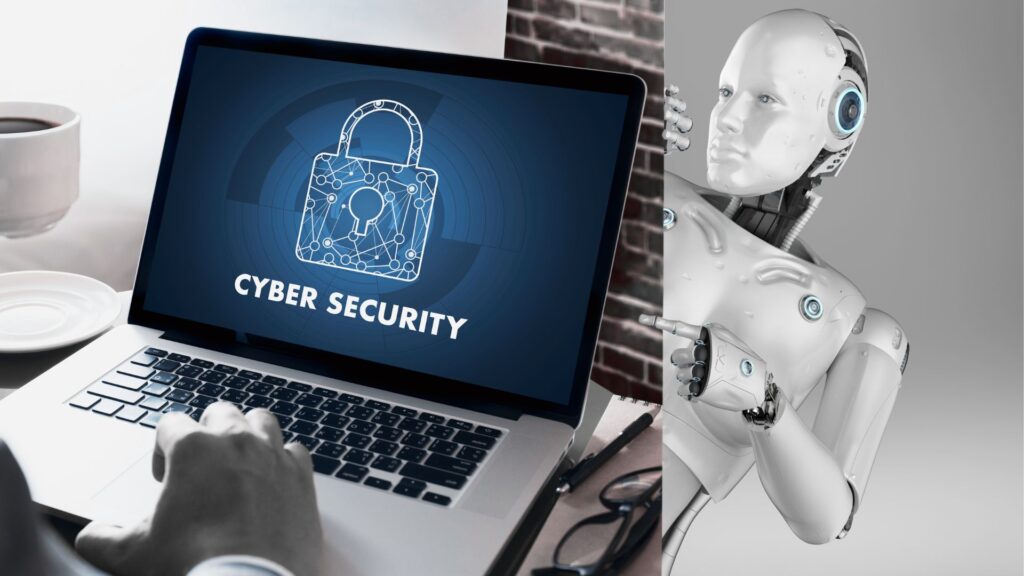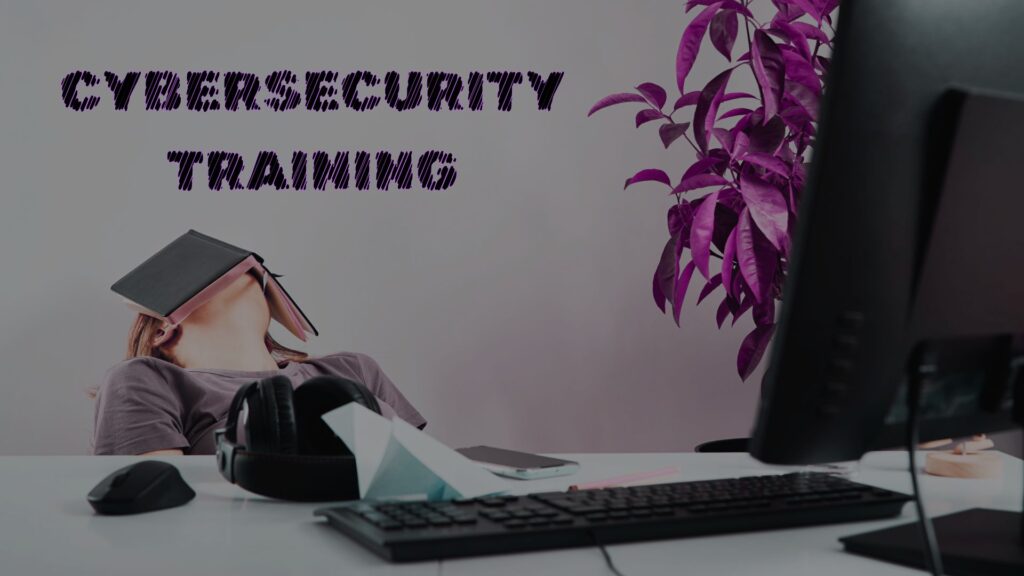A few years ago, when I first started my cyber security journey, artificial intelligence (AI) wasn’t considered as part of the field. At the time, you were either interested in pursuing a career in one or the other. So, I decided to focus on protecting people from cyber threats, vulnerabilities, and inform people through awareness training. But that has changed so quickly – if you’re in cyber security and ignoring AI, you’re missing half the picture. Why does AI belong in your cyber security journey? Let’s find out.
How AI and cyber security interact
The relationship between AI and cyber security is like a double-edged sword. Let’s break it down.
1. AI as a threat
Attackers are now using AI to create more convincing phishing emails, automate network scanning, and crack passwords faster than before. They are even using AI to generate deepfake content that can easily trick users into providing sensitive information. Worst of all, these aren’t future problems – they’re happening right now.
2. AI as a shield
At the same time, cyber security defenders are using AI to analyze massive amounts of log data, detect anomalies in real time, and automate threat responses. AI can detect unusual behavioural patterns that us humans might not see, like a user logging in from two countries within minutes.
There is so much change happening in short period of time, and we need to be part of it, or we’ll be left behind.
Why bother with AI as a cyber security professional?
AI is no longer a separate field; it has expanded into many fields to “help” users and businesses become more automated and efficient. As cyber security professionals, we need to understand how to use AI to help us improve our security monitoring and detection capabilities, or we may be caught unaware.
The truth is that as AI becomes embedded in cyber security tools, attacks, and infrastructure, we need to be prepared. Learning and understanding AI – even just the basics – means understanding how to better protect systems and users, detect threats faster, and stay ahead of all those malicious actors who are already using it as part of their attack toolset.
This doesn’t mean becoming a data scientist. It means understanding how AI works, what it’s capable of, and how to leverage it responsibly.
Benefits of integrating AI and cyber security
Let’s look at a few of the benefits we could attain when using AI in cyber security:
- Faster threat detection. AI can process and analyze logs, traffic patterns, and user behaviour much faster than us mere mortals. This enables us to detect potential threats faster.
- Reduced alert fatigue. AI uses algorithms which can filter out false positives and highlight the real threats within minutes which means less false alerts and more effective analysis of real alerts.
- Proactive security posture. AI can use the existing data and behaviour to predict patterns and prevent attacks before they happen.
- Improved incident response. Using automated tools can isolate threats in real time which provides more time for you to investigate and remediate any suspicious activity.
- Career growth. AI is becoming a required skill in many advanced cyber security roles and understanding how to use it effectively may just help you land that next promotion.
Now that we understand the benefits, how can we start using AI?
Tips to start using AI in cyber security (even as a beginner)
AI is not something you can learn overnight, but let’s look at five tips to help you get started.
- Start playing with AI tools. Try using AI tools like ChatGPT, Gemini, Claude, or Microsoft Copilot to start familiarising yourself with how they work.
- Use AI to help you learn. Begin by asking ChatGPT to explain a complex cyber security concept, walk you through a code snippet, or summarize CVEs. It’s like having a personal coach to help you on your journey.
- AI automation. Yes, automation can be tricky but start by exploring how AI-powered SOAR (Security Orchestration, Automation, and Response) platforms work. This can help lay the foundation of automation techniques for your future projects.
- Analyze logs with AI. Use AI to write queries, analyze patterns, or generate incident reports faster. Just remember to be careful of entering company-owned data on public platforms – always check your company’s AI policy first.
- Stay curious. Subscribe to AI-cyber hybrid newsletters or podcasts. These will help you track real-world use cases and trends.
Enjoy your new journey!
Cyber security is evolving, and AI isn’t just a tool – it’s part of your journey. Whether you’re using AI to help you defend smarter or help you learn the ropes, it’s an important skill for any cyber professional.
As part of our journey, we’ll document and share our learnings and experiences – from zero to wherever this path may lead. If you’re beginning your journey too, I hope that by sharing our story, it will help you think differently about the role that AI plays in our field. Be secure!


